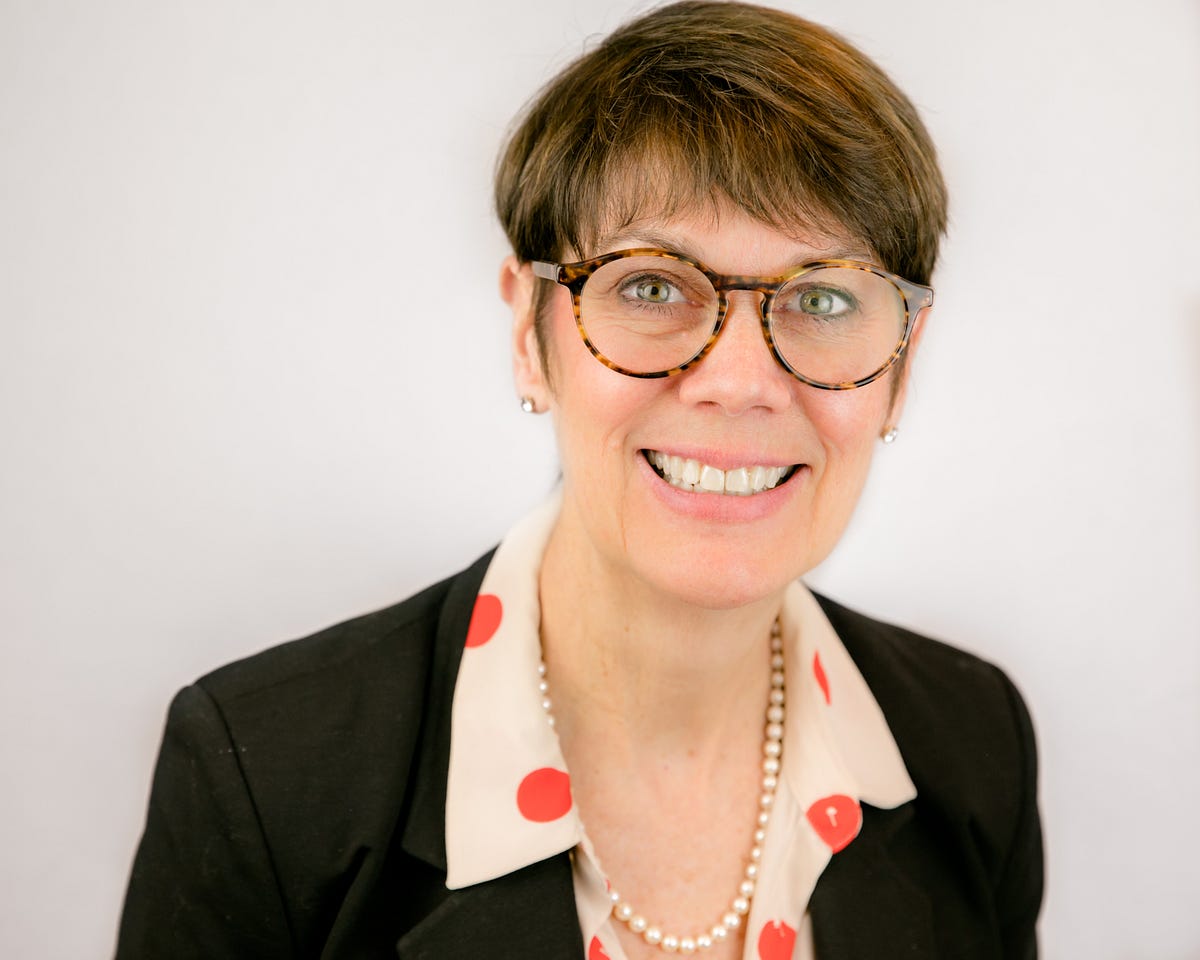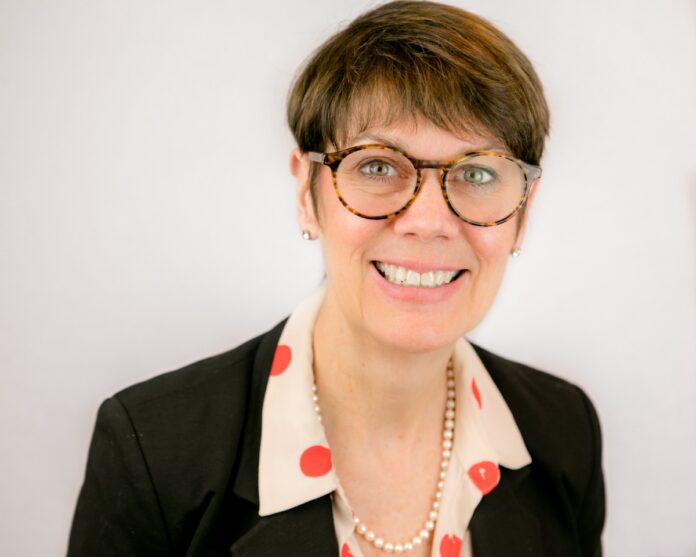Jill O’Donnell-Tormey of the Cancer Research Institute: “Elevating the celebrity of scientists to that of professional athletes and actors would go a long way to inspiring others to do the hard work of solving cancer or any of the problems the world is facing”

Elevating the celebrity of scientists to that of professional athletes, reality TV stars, and actors would go a long way to inspiring others to do the hard work of solving cancer or any of the problems the world is facing. The value and necessity of scientists to the well-being of humanity and the planet is grossly under-appreciated. I’d like to see that change.
As a part of my series about strong female leaders, I had the pleasure of interviewing Jill O’Donnell-Tormey, Ph.D., CEO and director of scientific affairs at the Cancer Research Institute (CRI), a global nonprofit organization dedicated to investing in the most promising areas of cancer immunotherapy research to harness the power of the immune system to conquer and cure all cancers. Dr. O’Donnell-Tormey joined the organization in 1987 as director of scientific affairs and began serving as its chief executive in 1993. During her tenure at CRI, she has helped to create catalytic and novel research programs that span the laboratory and the clinic. She has guided over $400 million in funding to these programs, which enable the research and scientific discoveries changing the course of cancer treatment today. Dr. O’Donnell-Tormey began her career as a postdoctoral fellow in the Laboratory of Cellular Physiology and Immunology at The Rockefeller University and proceeded to work as a research associate in the Department of Medicine at Cornell University Medical College. She received a Bachelor of Science degree in chemistry, summa cum laude, from Fairleigh Dickinson University, and a Doctor of Philosophy in cell biology from the SUNY Downstate Medical Center. She sits on the boards of HemaCare, Northridge, California; The City University of New York (CUNY); Health Research Alliance, Richmond University Medical Center; and the Staten Island Foundation.
Thank you so much for doing this with us Jill! Can you tell us a story about what brought you to this specific career path?
I was always interested in science and laboratory research. In college, I was a chemistry major, but, in thinking about a career, I wanted to do research that was more directly related to disease. I decided to get a doctoral degree in cell biology. While in graduate school, my mother was diagnosed with ovarian cancer. This was certainly the impetus for my dedication to cancer research.
Can you share the most interesting story that happened to you since you began leading your company?
I have been privileged to meet committed and generous donors who give of their wealth to enable CRI to carry out its work. One such individual is Chuck Feeney, a most interesting and unassuming man who devoted his entire fortune to better humanity. I was lucky to meet and forge a relationship with him. His support of CRI through The Atlantic Philanthropies was transformative.
What do you think makes your company stand out? Can you share a story?
CRI is the first nonprofit organization to see the immune system’s potential to treat and cure all forms of cancer, and it is the first nonprofit to dedicate funding to this area of research that has produced many of today’s innovative cancer treatments. Our persistent vision and ability to stay the course — providing vital support for scientists making the fundamental discoveries on how the immune system works and interacts with cancer — have paid off. Today immunotherapy is changing the way cancer is treated and is delivering durable responses in previously intractable cancers. I do not know of any other organization that was considered an outlier for so many years that has now been validated as the pioneer in a field. A laser focus on our goal coupled with an unrelenting adherence to excellence and outstanding research has made the difference.

Are you working on any exciting new projects now? How do you think that will help people?
CRI continues to fund the full spectrum of discovery, from laboratory research to clinical trials. It’s the only way to get to cures for all cancers. The dramatic successes with immunotherapy we have seen in subsets of patients are an indication of this modality’s potential, but this is just the tip of the iceberg. We’ve not yet tapped the full potential of the immune system. I am extremely excited about the impact CRI’s clinical strategy can have on developing effective new treatments for cancer patients. The Anna-Maria Kellen Clinical Accelerator is a unique collaborative model that serves as an “incubator” for the study of promising immunotherapy combinations addressing some of the most pressing unmet clinical questions. The program currently invests approximately $20 to $30 million in innovative clinical trials each year, benefiting patients as well as scientists and corporate partners. An ongoing study in metastatic pancreatic cancer is showing some very promising early results.
What advice would you give to other female leaders to help their team to thrive?
Be confident and straightforward. Be clear on objectives and expectations. Say what you mean and do what you say. Have an open-door policy. Stay connected, know what is going on in the company. Listen and see, and do not be too far removed from your team.

What advice would you give to other female leaders about the best way to manage a large team?
Inspire others. Lead by example. Be humble. Treat people fairly. Always recognize the contributions of individuals and give them the credit they deserve. Acknowledge publicly and privately the role various individuals on the team play in the company’s success. Being a leader who exhibits these qualities engenders loyalty from your team, and people will go above and beyond for you.
None of us are able to achieve success without some help along the way. Is there a particular person who you are grateful towards who helped get you to where you are? Can you share a story about that?
I was extremely privileged to work closely for many years with the longtime head of CRI’s Scientific Advisory Council, Lloyd J. Old, M.D. Dr. Old was a remarkable scientist who was one of the mainstays of the cancer immunology field. He was also a gentleman who cared deeply on a personal level for the many younger researchers he worked with and mentored. He was a scholar, scientist and musician — a true Renaissance man. I learned from him not only the scientific nuances of immunotherapy, but also how to develop programs, deal with people, and lead an organization. Without his guidance, encouragement, and support, I would have had a much more difficult route to being the CEO of CRI.
How have you used your success to bring goodness to the world?
I sit on a number of not-for-profit boards, and I hope that I contribute in ways that make each better able to achieve its mission and serve its constituencies. Because of my long-term involvement in the cancer field, I am often called on by family and friends, and friends of friends, to advise on cancer treatments. I am able to be a sounding board and a source of information on physicians and clinical trials. I am also the proud mother of two beautiful women who have each distinguished themselves professionally and personally, and I like to think I had something to do with influencing them to be their best.
What are your “5 Leadership Lessons I Learned From My Experience” and why. (Please share a story or example for each.)
- Be open to change.
I have headed CRI since 1993 and it is very easy to get comfortable and do things as they were always done. But I have learned the value of hiring smart, bold people who challenge me and the status quo to make the organization better as a whole.
- Make sure employees understand their value.
To get the most out of your staff it is important for them to see how they and the tasks they are charged to perform are important to the overall function and goals of the organization. People need to be appreciated and their good work rewarded.
- Take care of people.
I expect employees to give me a full day’s work, but I also know that being aware of their personal situation and being flexible when it comes to having to leave early to take care of a sick parent or to make a daughter’s soccer game goes a very long way. When you take care of your staff, they take care of the company and will go the extra mile when you need them to.
- One person does not have all the answers.
I have learned that asking your staff for input, ideas and opinions generates not only innovation, but a committed and invested team.
- Lead by example.
I set the tone for the organization. I do not ask people to do things that I will not do myself. I believe that the way I approach my work, interact with my staff, and exhibit teamwork is seen, appreciated and emulated.
You are a person of great influence. If you could inspire a movement that would bring the most amount of good to the most amount of people, what would that be? You never know what your idea can trigger. 🙂
Elevating the celebrity of scientists to that of professional athletes, reality TV stars, and actors would go a long way to inspiring others to do the hard work of solving cancer or any of the problems the world is facing. The value and necessity of scientists to the well-being of humanity and the planet is grossly under-appreciated. I’d like to see that change.
Can you please give us your favorite “Life Lesson Quote”? Can you share how that was relevant to you in your life?
I can remember my grandfather telling me when I must have been 8 or 9 years old that, “It doesn’t matter if you win or lose, but it’s how you play the game.” I am an extremely competitive person. I always want to win, but I am also a gracious loser. That quote has guided my actions not only in sports, but also in life. I work very hard and always give it my all. I strive to be the best, but I am always fair and I follow the rules.
Some of the biggest names in Business, VC funding, Sports, and Entertainment read this column. Is there a person in the world, or in the US with whom you would love to have a private breakfast or lunch with, and why? He or she might just see this if we tag them 🙂
Hands down, I’d love to have breakfast with Oprah Winfrey. She’s a real change-maker and could do so much to help the public realize how important our work is. Biomedical research is not one of her main charitable interests. Nevertheless, I’d like to introduce her to CRI and discuss how the answer to cancer resides in research and within our own bodies. Her support would have a major impact on our work to develop effective immunotherapies for all cancers.


